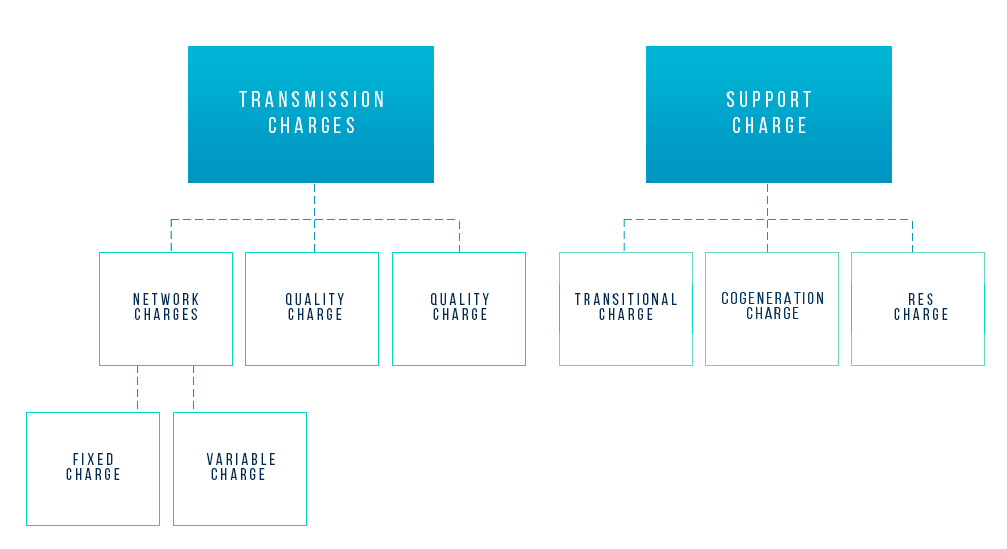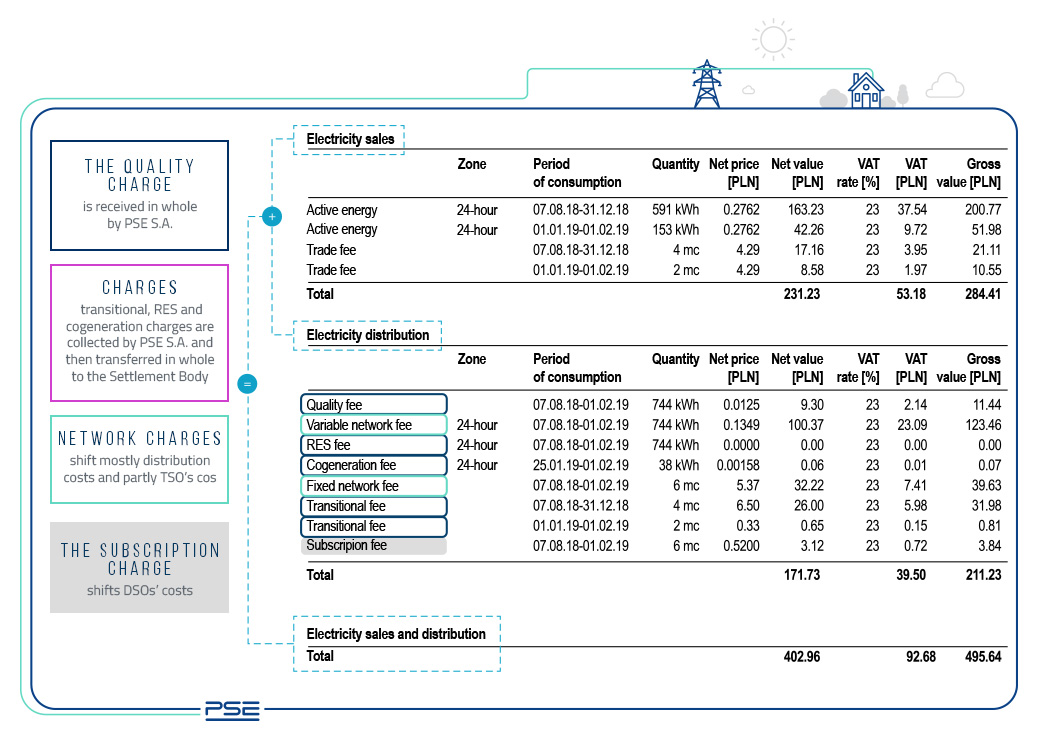PSE’s activities in the context of the transmission tariff and electricity bills
Electricity transmission from power plants to consumers is possible over an extensive transmission infrastructure. Responsibility for infrastructure on the part of PSE involves the need to carry out maintenance, inspection and repair work, and perform necessary, economically justified upgrades and expansions. This is aimed to address changes arising e.g. from an increase in demand and the energy consumption structure in the country, as well as the change of the structure and location of generating sources.
Maintaining the required quality parameters of electricity supplied and ensuring
PPS
operation security is associated with the need to purchase ancillary services provided by electricity generators.
Financing of expenses related to the transmission business, i.e. operating costs and capital expenditure, is based on the rules set forth in the applicable legal provisions, and expenses are covered by income from transmission services based on the application of the company’s Tariff approved by the President of
ERO
.
The tariff is a set of prices and at charge rates, and conditions for their use developed each year on the basis of planned, reasonable costs of business, as well as return on capital employed in transmission activities, intended for the financing of investment projects. The costs providing a basis for the calculation of charge rates for transmission services are subject to assessment by the President of ERO who approves the Tariff in an administrative procedure.
In 2019, PSE SA Tariff contained tariff charge rates:
- calculated by the TSO on the basis of the cost of PSE’s transmission activities and return on capital,
- set by the President of ERO, not related directly to PSE’s activities – RES charge connected with ensuring the availability in the PPS of electricity from renewable sources. In 2019, the RES charge rate was 0 PLN/MWh,
- resulting from the Act on the promotion of electricity from high-efficiency cogeneration (in force since 25 January 2019) not related directly to PSE’s activities – transitional fee related to the PPS access service.
All revenue collected by PSE in respect of the RES charge, cogeneration charge and the transitional fee is transferred to the Settlement Body, a company responsible for its redistribution to generators.


